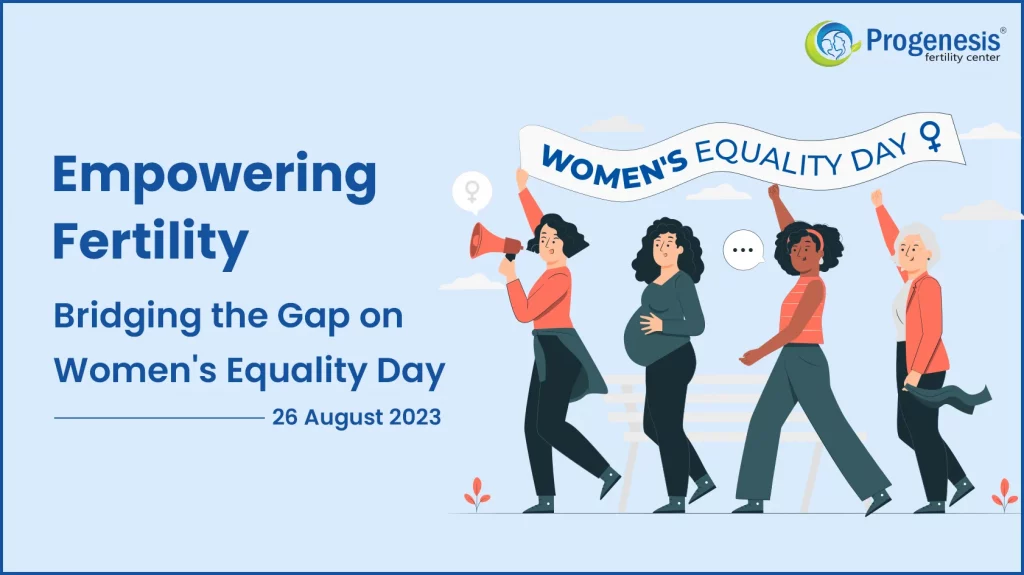On August 26, Women’s Equality Day 2023 is celebrated to commemorate women’s voting rights. The date was chosen to mark the passing of the 19th Amendment to the Constitution, which gave women the right to vote, in 1920.
When it comes to equality, infertility is an issue faced by both the genders. According to studies, about one-third of infertility problems are caused in women, one-third in males, and the remaining are caused by unidentified factors.
Infertility in men and women can have a number of common causes, including:
- Unhealthy lifestyle
- Stress
- Imbalance between work and personal life
- Obesity
- Abnormalities in the sperm
- Poor ovarian reserve, etc
Infertility is an equal problem for both the genders
The failure to become pregnant after 12 months or more of regular, unprotected sexual activity is the hallmark of infertility, a disorder of the male or female reproductive system. Millions of people struggle with infertility, which is caused by a variety of circumstances. A man’s sperm needs to unite with a woman’s egg in order to create a child. However this may not be possible owing to endometriosis, low sperm count, low testosterone, or ovulatory problems. Both genders experience this issue in the same way and are equally affected by it.
Women and Infertility
Most women deal with the hardship of infertility because they continue attempting to get pregnant naturally rather than getting the expert assistance of a fertility specialist and choosing a workable infertility treatment for themselves. With an open mind, every family can encourage their daughters to become mothers by taking help from the advanced fertility treatments available in the current day and age.
Equality and Infertility
- Find ways to discuss your fertility journey and break the taboo.
- Infertility should be defined as a reproductive illness and not as the person’s fault.
- Equal access to fertility care should be provided to everyone, including those who are unmarried, members of the LGBTQ+ community as well as people who lack insurance.
- Throughout your fertility journey, be kind to yourself. You are not flawed and your infertility is not who you are. You are just a strong, healthy person who is dealing with a major medical issue.
On this Women’s Equality Day, we pay tribute to the contributions of those who came before us and made it possible for us to continue fighting for social change. When women are unable to become mothers naturally, we magnify their voices, celebrate their bravery, and recommit ourselves to the task of finding opportunities for all women to enjoy motherhood.

